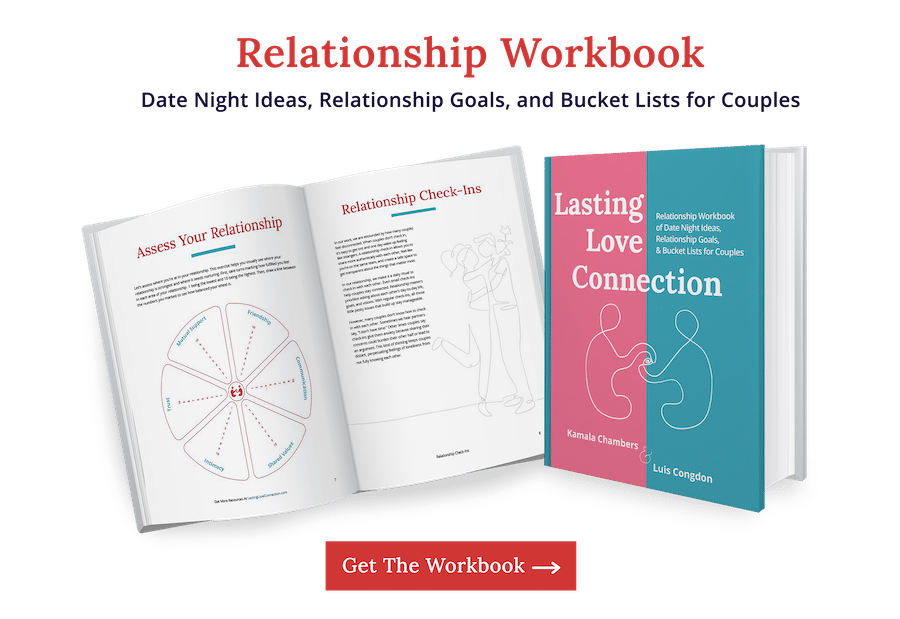Recovering from an affair is a complex process requiring time, patience, and effort.
However, repairing your relationship is possible.
This article walks you through the 8 steps of affair recovery and strategies for rebuilding trust after infidelity.
Table of Contents
An emotional affair versus a sexual affair
There are various types of extramarital affairs — physical affairs and emotional affairs.
Emotional affairs involve forming an intimate bond with someone other than your spouse.
While an emotional affair does not involve physical intimacy, there is often mutual physical attraction and flirtatiousness.
Emotional cheating can take many forms
- Being secretive about the depth of your connection or interactions with another person.
- Investing significant time and mental energy into this person in a way that detracts from your relationship.
- Getting validation and emotional support from someone other than your partner.
- Sending inappropriate messages (like sexting)
The unfaithful partner may minimize the affair, saying, “Nothing happened — we’re just friends!”
At the same time, it is clear they were not just friends.
Whether sexual intimacy happened – an emotional affair is just as much a betrayal.
9 steps of affair recovery
Infidelity is one of the most painful experiences in a marriage.
When your spouse has an affair, it triggers deep hurt, pain, anger, and grief.
You’ll likely feel disappointed that your partner hurt you so deeply and betrayed you.
These feelings do not vanish overnight and take time to heal.
Additionally, infidelity destroys the foundation of trust in your marriage.
Infidelity causes you to question everything as you refilter your relationship through the lens of betrayal. And you’re left asking how this could happen.
When trust is shattered, it can feel hopeless, like you’ll never be able to find steady ground again.
However, it is possible to heal after infidelity and find a way forward.
Related Reading: Surviving Infidelity
1. Acknowledge what happened

The first step in recovering from an affair is acknowledging the infidelity.
Recovering from infidelity requires honesty.
Start by having a transparent conversation about the affair.
The partner who cheated should be completely honest about what happened, why, and how they feel about it.
While this is an uncomfortable conversation, full disclosure helps you make sense of what happened.
Many factors lead people to cheat on their partners, such as unmet needs in the relationship, low self-esteem, or trauma bonds.
The unfaithful partner may have some idea why they cheated, yet may not be aware of some of the underlying issues at play.
For this reason, consider couples therapy.
A professional will provide expert insights and help you understand why the affair happened and what you must do to repair your relationship.
Also, meeting with a marriage and family therapist or relationship coach provides a safe space to discuss the affair without blow-up arguments.
2. Make sure the betrayed partner feels heard

Infidelity can spur a wide range of emotions, including shock, grief, anger, hurt, sadness, disappointment, pain, guilt, and shame.
Allow space for the betrayed spouse to express their feelings and share how the affair has impacted them.
Acknowledging the pain of the hurt partner and helping them feel seen and understood is essential to the healing process.
Related Reading: When You Hurt Someone You Love Here’s What To Do
3. Recovering from an affair means taking responsibility

Then, the person who cheated should take responsibility for their actions.
They should avoid becoming defensive, minimizing the infidelity, or making excuses for their behavior.
Instead, the person who cheated must acknowledge that their behavior was wrong and accept the consequences.
4. Set clear boundaries

Next, establish clear boundaries around what you need to heal.
Defining parameters after infidelity helps both partners feel safe again in the marriage.
Examples of boundaries after infidelity
- Asking your partner to stop all interaction with the person they cheated with
- Requesting access to your partner’s social media accounts, e-mails, text messages, etc.
- Asking your partner to leave their cell phone visible/face up
- Avoiding triggering behaviors (like answering phone calls outside)
- Checking in at a specific time during the day
- Taking a step back from physical intimacy
- Agreeing not to share intimate details of the affair with friends or family members
- Setting aside specific times to talk about the affair and times not to talk about it
To guide boundary setting, sit down together and talk about what led to the affair.
For example, if your partner became too emotionally intimate with a friend of the opposite sex — discuss expectations for friendships with the opposite sex.
Emotional affairs can be hard to define, as most people have different ideas about what constitutes infidelity.
Therefore, have those open conversations with your spouse about what you consider cheating.
Set clear expectations so you’re on the same page about what behaviors you’re comfortable with and what isn’t acceptable in your relationship.
For instance, you might agree not to spend time with someone of the opposite sex alone or to avoid sharing intimate details of your life.
Establishing clear boundaries can prevent future infidelity from happening, as well as give you the emotional safety needed to rebuild your marriage.
If you’re having challenges having these conversations, consider marriage counseling. A trained professional will guide you in discussing your emotions, needs and determining how to move forward.
At Lasting Love Connection, we help couples repair their relationships after infidelity.
Book a complimentary consultation to see if working with us would be a good fit.
5. Recovering from an affair takes checking in regularly

In the aftermath of an affair, both partners will likely be experiencing intense emotions.
The betrayed spouse may be hit with waves of overwhelming pain and sadness.
Meanwhile, the partner who cheated likely has lingering guilt about the hurt they’ve caused.
This emotional turmoil can create more distance between you unless you keep communicating with each other.
When recovering from an affair, set aside time each day to check in with each other. These check-ins allow you to discuss your feelings and concerns.
Further, you can reassess boundaries and discuss what you need to heal.
During relationship check-ins, listen without interrupting and acknowledge each other’s emotions so you both feel heard and understood.
6. Remember that recovering from an affair takes time

Recovering from infidelity can be a long process, and healing doesn’t happen overnight.
There is no overnight fix for the pain of betrayal, no simple way to reset things back to how they were.
Therefore, don’t try to rush the healing journey or place a timeline on it.
Know that it’s normal for the betrayed partner to experience days when they’re confident about moving forward in the relationship and other days when the grief and pain are all-consuming.
Healing from infidelity is like grieving a loss. Moving through grief looks different for each person and doesn’t have a neat progression or set timeline.
The wife or husband who cheated should not insist that their partner ‘get over it’ already.
Instead, offer a safe space for the betrayed spouse to move through their emotions as they arise and know they will be heard and supported.
7. Prioritize self-care

Affair recovery is incredibly stressful and emotionally taxing.
As you move through intense emotions and fears about the future of your marriage, prioritize taking care of yourself.
Self-care allows you to tune in with your thoughts, feelings and needs so that you can effectively communicate them to your partner.
Practice self-care by
- Eating healthy foods
- Drinking enough water
- Getting enough sleep
- Moving your body
- Practicing deep breathing or meditation
- Listening to your favorite music
- Spending time in nature
- Engaging in a creative project
- Taking a bubble bath
- Writing in a journal
- Watching a funny movie or TV show
- Spending time with trusted friends and family
Keep your self-care activities a private practice or include supportive people in your life.
Additionally, when nourishing your mental, emotional, and physical well-being, you’ll have more capacity for rebuilding your marriage.
8. Recovering from an affair requires support

Recovering from an affair is challenging, even more so if you try to do it alone.
Consider seeking professional help from a marriage counselor or licensed marriage and family therapist who can help you navigate difficult conversations and give you the tools to communicate your emotions and needs more clearly.
Additionally, a licensed professional counselor will teach you exercises that facilitate healing and trust-building after an affair.
To see if relationship support is right for you, book a complimentary couples consult.
Recognize the warning signs of post-traumatic stress disorder
Infidelity can be a traumatic event. Some individuals may find that experiencing infidelity triggers symptoms of post-traumatic stress disorder (PTSD).
Symptoms of PTSD include
- Intrusive thoughts
- Ruminating about the affair
- Recurring memories or nightmares
- Heightened anxiety, worry, or fear
- Increased irritability or rage
- Trust issues in relationships
- Withdrawing from friends and family
These symptoms make it challenging to function in day-to-day life.
If you notice these signs in yourself or your spouse, seek support from a clinical psychologist or other mental health professional who can offer guidance.
How to rebuild trust after an affair
After discovering infidelity, it can feel like trust is irreversibly shattered.
However, if you desire to save your marriage, you can take steps to start rebuilding trust.
Gottman’s trust revival method
In the book What Makes Love Last (originally published in 2012), Dr. John Gottman describes a three-stage process for rebuilding trust after infidelity.
The Trust Revival Method has three phases — atone, attune, and attach.
Atone
The first phase is called ‘atone.’
In this phase, the unfaithful partner should take full responsibility for their actions and make amends.
For healing to happen, they can’t make excuses for their behavior or blame their cheating on their spouse.
Instead, they must acknowledge what they did was wrong and take accountability for the pain they caused.
In this stage, the hurt partner is likely experiencing emotional pain, anger, and/or fear. While they move through these emotions, they should also be open to forgiving their partner.
Attune
Next, the focus shifts to building your relationship.
This stage is about recognizing the unmet needs in your marriage and working together to ensure you are meeting each other’s needs.
Gottman suggests practicing attunement –– or tuning into your partner’s inner world.
To do a simple attunement practice, take a moment to focus on your spouse.
Imagine what it is like to be in their experience and see the world through their eyes.
When there is an attunement, it allows both partners to feel seen and understood.
Ultimately, practicing attunement deepens emotional intimacy and builds trust.
Related Reading: Marriage Intimacy Exercises
Attach
Gottman calls the final stage of re-establishing trust ‘attach.’
In this stage, slowly reintroduce conversations about sex and physical intimacy.
It’s common for this topic to stir up painful emotions like anger, fear, and resentment toward your partner,
Talk openly about these emotions with your partner.
At the same time, remain open to discussing sexual desires and preferences.
Effective marriage communication around sex ensures you are both getting your needs met in this area.
Talking about sex can reignite desire and allow you to start enjoying sexual intimacy again.
Restore trust through small gestures
In the aftermath of an affair, small gestures add up and make a huge difference in repairing your marriage.
These gestures don’t have to be grandiose or extravagant.
Instead, they should be about supporting your partner and showing them that you want to repair the marriage.
Spend quality time together

Schedule a weekly date night where you can focus on each other without the distractions of everyday life.
Sharing new experiences allows you to take your mind off the affair and focus on the positive aspects of your relationship.
After infidelity, it’s normal to feel a lack of desire for your partner.
Injecting time for fun and play is crucial for reducing tension and refueling feelings of love.
Also, inviting your partner on a date night helps them to feel desired, wanted, and valued.
Date nights don’t require going out to a fancy dinner or spending a lot of money.
A date night can be as simple as going for a walk together or cooking a new dish.
As you spend time together, you’ll slowly rebuild trust within your relationship.
For 100+ at-home dates, unique outings, adventure excursions, and weekend getaways, pick up the Relationship Workbook.
Be transparent about how you spend your time
Another way to restore trust is total transparency about where you’re going and who you’ll be with.
Offering this information (even when your partner doesn’t ask) reassures them that you have no secrets.
Show appreciation

Tell your partner how much they mean to you regularly.
Show appreciation by thanking your partner verbally or writing them a note letting them know the ways that they enhance your life.
Or play the Appreciation Game on your next date night to infuse more appreciation and gratitude into your relationship.
Practice active listening
Set aside time every day to talk to each other without distractions.
As your partner shares, maintain eye contact and listen attentively.
Ask clarifying questions to ensure you deeply understand what they are saying.
Also, avoid the urge to respond defensively.
Instead, try to put yourself in your partner’s shoes and understand their perspective.
Showing your partner that you care about truly hearing and understanding them builds trust.
Do something thoughtful
Small acts of kindness show your partner you care.
For example, cook your partner’s favorite meal or take an errand off their plate.
These gestures are a way to prove your commitment to the marriage.
Recovering from an affair is possible
Don’t give up hope.
While healing after an affair takes time, patience, and dedication, it is possible to rebuild your marriage and come out stronger than ever before.
If you’re struggling to move forward after an affair –– you don’t have to go through this alone.
The Save Your Marriage Course provides a safe space to heal past hurt and create a stronger marriage.
With this marriage course, you’ll navigate affair recovery and create a happy relationship.
Join the Save Your Marriage course.







0 Comments